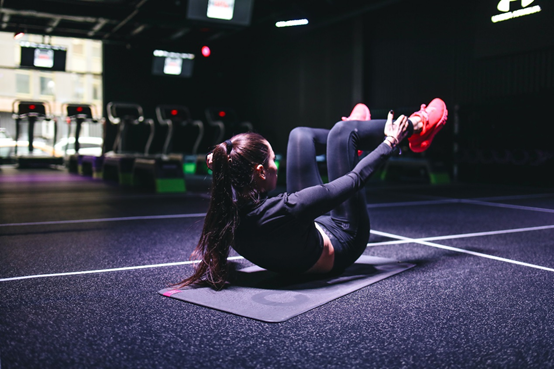Foods which contain magnesium:
· Green leafy vegetables (e.g. spinach and kale)
· Fruit (figs, avocado, banana and raspberries)
· Nuts and seeds
· Legumes (black beans, chickpeas and kidney beans)
· Vegetables (peas, broccoli, cabbage, green beans, artichokes, asparagus, brussels sprouts)
· Seafood (salmon, mackerel, tuna)
· Whole grains (brown rice and oats)
· Raw cacao
· Dark Chocolate
· Tofu
Did you know that not getting enough magnesium can prevent you from reaching your fitness goals?
It doesn't matter how hard you push your body if it isn't also getting the nutrients it needs. If your body doesn't have sufficient levels of magnesium it will reduce your performance during workouts and slow down your recovery process.
The importance of magnesium intake in athletes has been studied in depth, and the results are clear: magnesium is required for your optimum performance, no matter your fitness level.
Each Sunbio Collagen Peptides Muscles & Energy sachet contains 4455 mgs of Premium quality Australian derived Collagen Peptides, 100 mg of Vitamin C (Ascorbic Acid), 10 mcg of Vitamin B-12 (cyanocobalamin) and 55 mg of magnesium.
Magnesium is an important plays an important role in our body, being that it is a co-factor for hundreds of enzyme reactions within the body. These enzymes are vital for a variety of important processes such as the conversion of energy from carbohydrates, fats and protein, not to mention healthy DNA synthesis, blood sugar balance, bone health and a calm nervous system.
In this guide to the benefits magnesium for athletes, we take a look at just why this mineral is so important for recovery, and how to make sure you're getting the required intake.

Why is Magnesium for Athletes Important?
Magnesium is essential for anyone who exercises regularly especially those who weight train. Here are some of the reason why this essential mineral so important.
1. Prevents Muscle and Spasms
The cramps and spasms that many athletes are so accustom to can easily be prevented. Magnesium is the key to helping spasming muscles relax.
Low magnesium levels have been scientifically proven to cause cramps in the legs and other muscle groups. The dehydration caused by exercise makes the effect even more intense. Adding magnesium to your supplement regimen will help prevent uncomfortable muscle cramps during and even after work outs.
2. Provides Your Body With Energy
When you exercise, your body's magnesium levels rapidly decrease, this is because when you sweat, this magnesium is lost from your body.
Much of the body's energy comes from ATP, a molecule that captures chemical energy from food and uses it to fuel other processes in the body. ATP production depends on magnesium.
During an intense workout, magnesium enters the red blood cells in order to help sustain your energy levels. This is because intense exercise depletes the oxygen in your blood cells, so magnesium is your body's way of balancing out that loss to sustain energy. This means that if you're doing high-intensity workouts, especially if they are in a hot environment, taking magnesium helps to keep providing your body with the energy it needs.

3. Aids Muscle Recovery
The prevention of spasms and the replenishment of red blood cells are is a factor in helping your body's recovery process. However, magnesium also has other functions in your body that make it essential for muscle recovery post-workout.
Magnesium is an anti-inflammatory substance, which helps your body for reduce swelling, joint pain, and other post-workout inflammation. Along with Collagen peptides which has proven benefits for joint health, magnesium supplements may help prevent future arthritis.
Magnesium for athletes is essential because it is what allows muscles to return from a contracted state to a relaxed state. Magnesium contributes to flexibility and helps to prevent injury by loosening tight muscles. Without enough magnesium, muscles can't properly relax, possibly causing cramps. Low magnesium can create a buildup of lactic acid, known to cause post-workout pain and tightness.
4. Helps You Perform Better
When you exercise, your body turns glycogen into glucose, providing your muscles with fuel for the workout. Magnesium is necessary for this process to work. When you aren't getting enough of this mineral, you'll feel fatigued more easily and will struggle to complete your workout.
Every athlete knows the importance of protein for performance. But did you know that magnesium also helps you metabolize protein better? This means you'll get the most power from your protein.
Magnesium is one of the essential electrolytes needed for efficient hydration. Magnesium also builds strong bones, maintains heart health, helps to prevent diabetes by regulating blood sugar, prevents inflammation and strokes, boosts immunity, preserves a proper PH balance in the body, and relieves constipation.
5. Builds Lean Muscle
Your body's sensitivity to insulin goes down when magnesium levels drop. This makes it more difficult for your body to lose fat and gain lean muscle. With higher magnesium levels, you are able to gain muscle mass you want much faster.

上一篇:Ways to Work Up to Handstand
下一篇:没有了!

 中文
中文